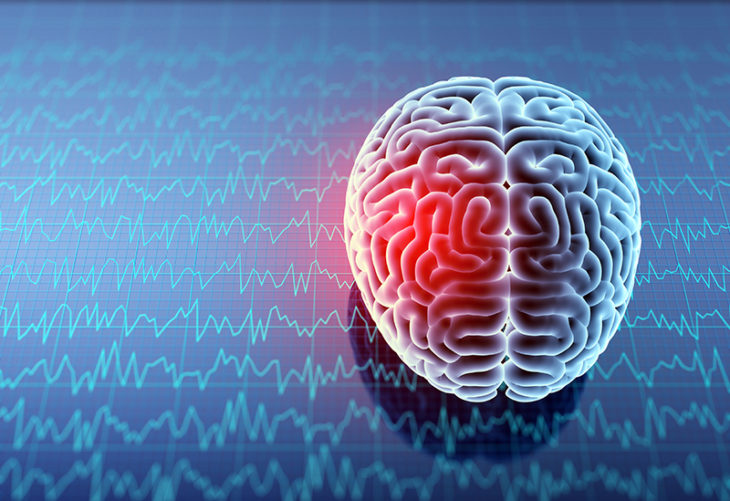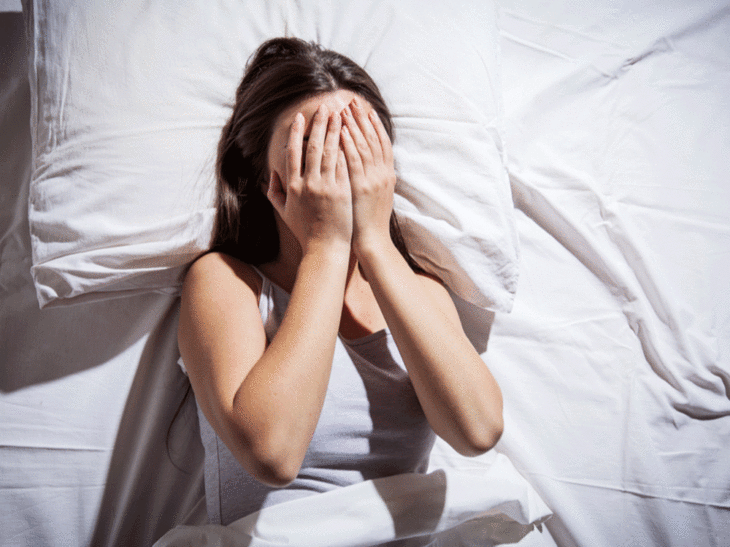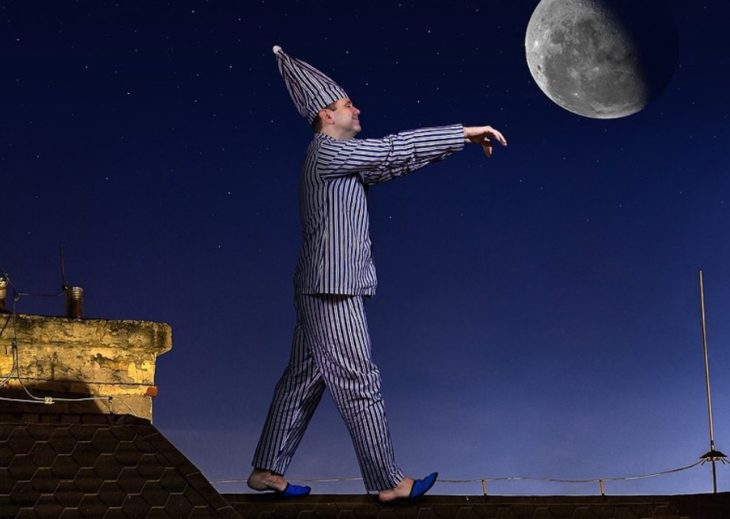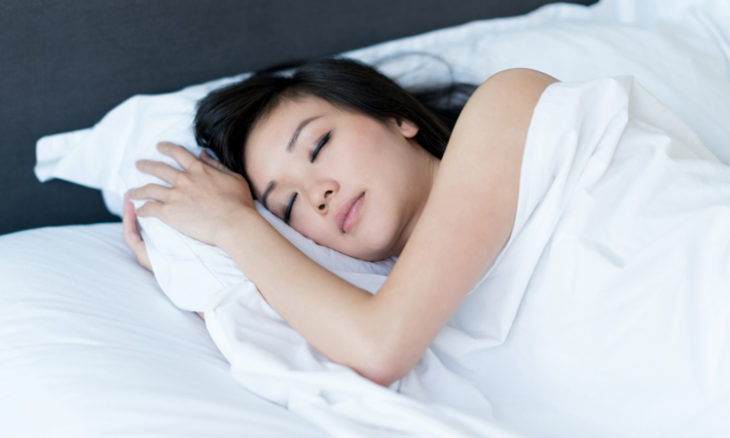The internet… books… magazines… word of mouth… there’s no end to the ways we can get information, but whenever you want information or advice, you should always get it from a reliable source. There’s some real rubbish out there. Take sleeping, for instance. A poll by the sleep app Calm has shown that Brits believe all kinds of nonsense about sleeping. Not only the Brits have been hoodwinked into thinking things about sleeping, as research in other countries has also illustrated. Below are some of the most common myths about sleeping, why they’re wrong and, most importantly, what you should be doing now that you know they’re untrue.
Contents
The brain rests when we sleep

Source: thecenteroregon
We might be asleep, but our brain isn’t. Apparently, 48% of the Brits in Calm’s research poll didn’t know this. What actually happens is that some parts of the brain rest while others start to go to work or continue working. Take dreaming, for instance. As we move into a deeper sleep, the brain becomes more active and, in the rapid eye movement (REM) stage, which is when we dream, it becomes a real hotbed of activity.
That’s not the only thing going on in the brain. The mind really is that active and the emotional part of our brain kicks into overdrive at night. That’s why we sometimes can’t get to sleep. Our thoughts are just racing and racing, mulling over events in the past and in the future and worrying about them.
It’s possible to keep this active brain of ours in check, though. We can adopt some simple mindfulness approaches and generate a positive state before we go to bed. It’s important to climb into bed feeling good. We’ll have more trouble sleeping if we’re nervous or worried.
Cheese gives you nightmares

Source: Pinterest
This is a common myth and 22% of the Brits who took part in the poll believed it was true. As far as myths go, it’s truly ridiculous, not to mention strange, and has no real substance. Far from encouraging demons, monsters and other unpleasant souls to enter your dreams, cheese may actually lend you a helping hand when it comes to getting to sleep. This is thanks to the tryptophan in it, which the body uses to synthesize serotonin, a neurotransmitter that contributes to sleep, calm and wellbeing.
Fried foods are the ones you really should stay away from before you go to bed. They’re fatty and greasy and the body will have a hard time coping with them, keeping you awake as a result. Other foods you should watch out for include coffee (not a food, true, but the caffeine in it will make you more alert), chocolate and, surprisingly, turkey (because it causes the brain to produce dopamine, which is a motivating type of chemical and compels people to action, which you don’t want when you’re trying to rest!).
Alcohol helps you sleep

Source: Medium
A little nightcap might help you get off to sleep. There’s no denying that, but the sleep will be poor. Alcohol confines sleep to the early stages of sleep and deprive you of the deeper, more restorative ones. At some point, you’ll have to wake up to go to the bathroom either once or several times. The end result is that you don’t feel refreshed at all when you wake up.
If you are looking for a drink that will help you sleep, there’s the old classic, warm milk. Scientists believe there’s a link between the tryptophan and melatonin in milk and better sleep. It’s not just the scientific link, though, that may lead to a decent sleep. Psychologically, this could remind you of your bedtime routine as a child, with the warm milk providing a soothing backdrop to your bedtime routine. Other drinks you could also try ― although they’re not quite as reminiscent of your childhood ― would be herbal teas, such as peppermint and camomile, which are also calming options before bedtime.
You shouldn’t wake a sleepwalker

Source: Medscape
48% of the Brits who took part in the poll believed you shouldn’t wake a sleepwalker, so strong is the myth. Let’s debunk this one right now: if someone is sleepwalking and you’re just leaving them to get on with it, you’re letting them run the risk of hurting themselves. Should you wake a sleepwalker? You don’t have to wake them, necessarily, but you should guide them back to bed and not worry if you wake them.
You can help sleepwalkers by making their sleeping environment safe. Remove any sharp objects from the room. Get them to sleep on the ground floor, if possible, instead of an upstairs bedroom. Lock doors and windows and cover windows with heavy drapes. Place an alarm or a bell on the bedroom door, which will wake them out of their sleep.
Sleepwalking occurs when a person is in a deep sleep, although it can occur during the lighter stages of sleep. If you or someone you know is sleepwalking, paradoxical as it may sound sleep deprivation may be behind the issue. Improving sleeping habits could solve the problem and you should also check that you’re sleeping on suitable bedding, says bedstar.com. Note that medication, sedative agents and some illnesses could also cause sleepwalking.
Sleep isn’t important

Source: rewireme
As far as myths go, this has to be one of the most downright stupid ones out there. Of course, sleep is important. A typical adult requires between 7 and 9 hours of sleep per night. Those who eek by on just a few hours may be able to perform adequately, but, ultimately, they won’t be firing on as many cylinders as they think they are. Worse still, by not sleeping as many hours as they should, they’re racking up their sleep debt. In the long term, not getting enough sleep, as well as having an impact on weight and energy levels, can do serious harm to a person’s health.
If you’re reading this and are one of those people battling through the days on just a few hours of sleep each night, it would be wise to review your sleeping habits and cancel out your sleep debt by going to bed an hour or two earlier each night of the week. Don’t think just a couple of nights will do the trick. You should work out how much sleep you’ve missed and try to replenish it.
There are lots of other silly myths out there and, sometimes, it’s hard to know what to believe. Some of them, if not all of them, have no medical grounding whatsoever, so take anything that sounds ridiculous with a pinch of salt. Accept that it might be possible, but don’t act upon it in the blind belief it must be true. Instead, consult your doctor or a sleep hygienist for advice on sleep hygiene, especially if you’re having trouble sleeping. There’ll be no hearsay or hokum, just sensible, practical advice.
